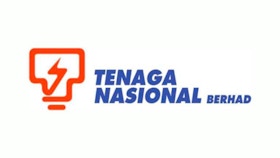Tenaga Nasional Berhad (TNB) intends to work with PETRONAS on joint feasibility studies in the areas of Hydrogen and Carbon Capture with a view to unlock the commercial value of at least RM10 billion up to 2035, said TNB President and Chief Executive Officer, Dato’ Indera Ir. Baharin Din.
The studies form part of the areas covered under a Memorandum of Understanding (MoU) inked by both companies on 19 August. The MoU was signed to strengthen collaboration in driving innovative solutions toward decarbonisation, making it a historical milestone in supporting Malaysia’s aspiration to be a carbon-neutral nation by 2050.
The decarbonisation efforts would be achieved mainly through a collaborative study to develop a green hydrogen ecosystem and carbon capture and storage (CCS) technology, leveraging both organisations’ technical expertise and resources.
In addition, the two companies will repower the retired combined-cycle gas-fired power plant in Paka, Terengganu (the Sultan Ismail Power Station or SIPS) by using gas with hydrogen-ready technology.
TNB will be investing RM6.3 billion in the repowering of SIPS using high-efficient Combined Cycle Gas Turbine (CCGT) with hydrogen-ready technology for cleaner energy production.
Baharin said the repowering of the plant will leverage on the strengths of both TNB and PETRONAS; and will serve as a unique pioneering project in deploying green technologies that may be utilised in future power plants.
“This brownfield project will start with the demolition of the existing plant next year and this will take two years. Construction of the project will commence from 2025 and the entire complex is scheduled to be ready in 2030.”
Upon commercial operation of the plant in 2030, the repowered Paka is projected to generate an average of RM250 million per year in Earnings Before Interest & Taxes (EBIT).
“The Repowering of Paka, with a capacity of 1,400 megawatts (MW) will avoid 3.2 million tonnes of carbon dioxide equivalent (tCO2e) emission per annum, which is equivalent to the CO2 emitted by approximately 700,000 cars each year.”
As the country’s leading energy corporations, Baharin said TNB and PETRONAS have been forging cooperation for decades in the development of the energy sector and the betterment of the country. “The MoU signals the recognition that our paths must converge, in order to realise a successful and inclusive energy transition for Malaysia. TNB has identified 2 technologies that will bring sustainable decarbonisation to our thermal assets and these are Green Hydrogen and Carbon Capture technologies.”
Baharin added that TNB’s MoU with PETRONAS forms part of TNB’s accelerated Responsible Energy Transition which is driven by the Group’s aspiration to be net zero by 2050 and the TNB’s target to reduce its coal capacity by 50 per cent and carbon emission intensity by 35 per cent in 2035.
Baharin said Paka’s transition to be hydrogen ready is a prime example of TNB’s commitment to a long-term investment to decarbonise its generation ecosystem and in creating ripple economic effects for better lives.
He explained that the Repowering Strategy of TNB’s generation arm, TNB Power Generation Sdn Bhd (TNB Genco) hinges on the type of green technology and the expiration of Power Purchase Agreements (PPAs) which are divided to before 2030 and after 2030.
“For PPAs expiring before 2030, TNB is phasing out its coal and gas plants and will repower to CCGT with the optionality of hydrogen co-firing and new green technology.
For the Group’s power stations with PPAs expiring after 2030, Baharin said “These plants are in a better position for transitioning to new green technologies such as co-firing and carbon capture, utilisation and storage (CCUS) technology.”
“We will also explore the potential of the green hydrogen economy. By undertaking R&D on Green Hydrogen, we hope to reduce the levelised cost of electricity (LCOE) for Green Hydrogen that TNB can use as a fuel for future power generation with zero emissions.”
LCOE is a measure of the average net present cost of electricity generation for a generator over its lifetime.
In addition, he added that TNB will seek to venture into energy supply and hydrogen production along the Green Hydrogen value chain. “We have the potential to increase RE in Peninsular Malaysia which is the key ingredient to produce Green Hydrogen. TNB will continue exploring opportunities to participate in other parts of the Green Hydrogen Value Chain with partners like PETRONAS and other technology leaders where technical and commercial synergies can give TNB the competitive advantage.”
Publish your content with EB Publishing
It's about who you reach. Get your news, events, jobs and thought leadership seen by those who matter to you.









